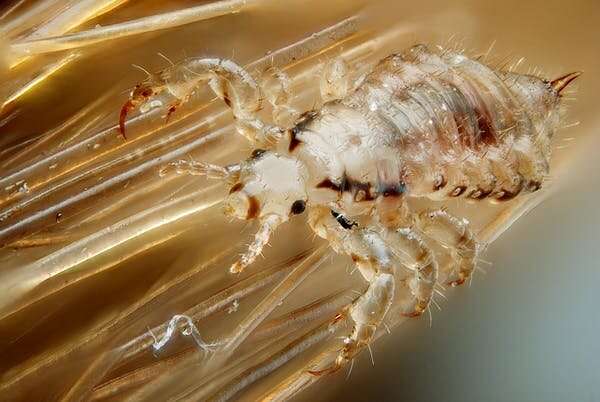Ivermectin is still not a miracle cure for COVID-19, despite what you may have read

The head lice drug ivermectin has yet again been touted in the media as a possible treatment for COVID-19. But despite the favorable headlines, huge uncertainty remains about whether this treatment can be safely and effectively repurposed to tackle the coronavirus.
In recent weeks the media has been awash with claims ivermectin, when given in combination with the common antibiotic doxycycline and zinc supplements, is effectively a "cure" for COVID-19.
Yet there has been no definitive clinical trial so far showing this is the case. All we have are observational studies and clinicians' opinions.
The World Health Organization's database of clinical studies for COVID-19 shows there are currently 16 trials investigating ivermectin. Even these studies are unlikely to provide the high-quality data necessary to show ivermectin can actually provide its touted benefits.
Many of the current studies have low numbers of participants, weak study designs, and inconsistent (and relatively low) ivermectin dosing regimes, with ivermectin frequently given in combination with other drugs.
The Royal Australian Council of General Practitioners and the Australian Commission for Quality and Safety in Health Care have warned there is insufficient evidence ivermectin is a safe and effective treatment for people infected with the coronavirus.
What do we know about ivermectin for COVID-19?
Laboratory studies using monkey cells in a test tube (as opposed to clinical studies in human patients) have shown ivermectin can shut down the replication of SARS-CoV-2, the coronavirus that causes COVID-19, within 24-48 hours of exposure to the drug.
Ivermectin is thought to inhibit the virus by preventing viral proteins moving in and out of the host cell's nucleus, which is essential for replication of the coronavirus.
The problem is this process requires very high concentrations of ivermectin—well above the recommended dose for humans. This means ivermectin's virus-killing powers would be unlikely to be harnessed inside the human body.
A detailed analysis of the relationship between dose and concentration of ivermectin suggests none of the currently used ivermectin dosing regimens would deliver high enough concentrations of ivermectin inside the body to activate its virus-killing effects.
Another review backs this up, suggesting all of the ivermectin doses being investigated in current clinical trials would fall well short of achieving drug concentrations high enough to wipe out SARS-CoV-2.
Even a 120 mg dose of ivermectin, which would be regarded as excessive (compared with the recommended dose of 3-15mg for treating parasitic infections) resulted in blood concentrations several orders of magnitude times lower than those needed to inhibit the virus.
How much ivermectin is too much?
While ivermectin generally doesn't cause problematic side effects at the currently used doses, there is limited information about whether much larger doses would also be safe.
Repurposing ivermectin as a "cure" for COVID-19 would require massive doses, which would substantially increase the risk of side effects such as nausea, rash, dizziness, immune suppression, abdominal pain, fever, raised heart rate and unstable blood pressure.
Ivermectin at usual doses does not enter the central nervous system, but after large doses of the drug it may enter the brain, potentially causing impaired vision, hampering the central nervous system (which could in turn affect breathing, heart rate and consciousness), and exaggerating the effects of other sedative medicines such as benzodiazepines.
Ivermectin is a hugely useful medicine in treating parasitic illnesses such as lice, worms and scabies, particularly in developing countries. But as we have already seen in the case of the malaria drug hydroxychloroquine, just because a medicine is useful for one purpose, it cannot automatically be considered a miracle cure for COVID-19.
Repurposing drugs as COVID-19 treatments
Repurposing existing drugs as possible COVID-19 treatments is a smart strategy, but requires several key principles to be addressed. The drug must have antiviral effects in cells and animals at doses relevant to humans. The drug must be able to get to the site of infection in the body (or reduce the inflammation associated with the infection). It is best if the antiviral mechanism is understood. And finally, well designed clinical trials are needed to be sure the drugs works in people with the infection and it is safe to use (especially in older, vulnerable unwell people).
Thankfully, Australia's National COVID-19 Clinical Evidence Taskforce continually assesses and updates the best evidence-based advice for treating COVID-19, which you can read here.
This article is republished from The Conversation under a Creative Commons license. Read the original article.![]()




















